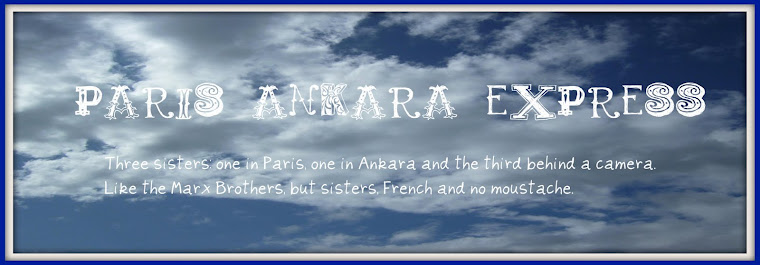The problem is when it's just not clear if our lack of empathy for female characters is caused by our own reluctance - are we the kind of women who don't like other women?, are we 'part of the problem'? - or the lack of good enough female characters to empathise with. The whole filming industry is still of course male dominated, so female characters are always going to be first and foremost, something attractive to look at. If we're lucky, they'll actually have interesting characters as well, if we're really lucky, the male leads will be pretty too.
So it's hard to know whether our reluctance to empathise with female characters is caused by our inability to see another woman as interesting or valuable, or by the producers' sexist attitudes. But to make things even more confusing, some shows market themselves as commentaries on past sexist attitudes, for instance the British series Life on Mars and Ashes to Ashes, and the American one Mad Men.
Life on Mars and Ashes to Ashes make life a bit easier for us. In both series, there is a witness from the 21st century, a character who is somehow transported back to the 70s in one series and the 80s in the other, and who is outraged by and outspoken against the sexist practices they witness in those times.
Mad Men isn't like that. It's been praised for its accuracy in painting life in Sixties America. The costumes, they say, are very good. So are the sexist attitudes. The women in the work place are belittled, under valued and treated as sex objects. The women at home are just wives and mothers. In fact, the whole sexism thing is so well done that a lot of the time, people just don't notice it. I've read a couple of discussions recently of whether Betty Draper, the hero's (estranged) wife is a bad mother. Given the context there is no way this should even be a topic of debate. Here's what the philosopher Mary Wollstonecraft has to say on the topic:
But, till men become more attentive to the duty of a father, it is vain to expect women to spend that time in the nursery which they choose to spend at their glass. ( Vindications of the Rights of Woman, Preface, 1792).
There you have it. End of discussion. Unless you're a single parent, it takes two to do the job well, and if one half is dependant on the other, then they have to wait for that person to take the lead in good parenting. So yes, my friends and I think that our children's well being matters more than our looks, unlike Betty Draper, but that's because a) our children's fathers think their children's well beings matters more than them eyeing us up, and b) they actually put in as much work as we do in maintaining that well being.
Betty Draper spends her entire time mothering her children while her husband is either at work or in bar or in a hotel room with another woman. Then when the kids are in bed and her husband eventually comes home, she's only of interest to him if she looks good. There is no way that woman could be a good mother and be married. By the time she marries someone who is a little more serious about his role in the family (though still not what we'd think of as a good father) - well, do you know many people who suddenly become better because their life stops being a disaster? Should years of damage count for nothing? Would you expect a man to suddenly spring back? No, what was true in 1792 was still clearly the case in the sixties. Betty Draper could not have been a good mother and the only thing worth discussing here is whether Don Draper could have been a better father.
Oh, one last thing. If you liked this post, would you mind terribly clicking on the RSS feed, here, or the Google connect buttons (top left)? And if you didn't like it, you might still want to look around. There's three of us, you know, so you're (almost) bound to find something you like. And then, if you've still got time, you could share this post or stumble it, or both and get in touch with your local tv station to sing our praises. We'll love you forever.

No comments:
Post a Comment